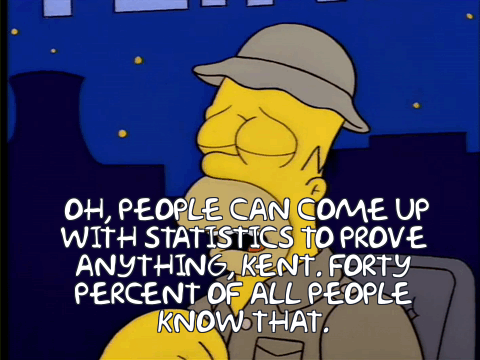like, the internet's full of this: "study founds that if you put a stick up your ass you get a 12% increased chance of dying at your 60s" and then people are like "OH MY GOD;;; ~~~SCIENCE~~~ JUST CONFIRMED THAT WE SHOULD PUT STICKS IN OUR ASSES"
and then there's this: "this online poll by shadysite.com said that 95% of the people actually love That Thing You Love Too™" and then you see all these old people saying "wow i knew i was right all along"
like, this isn't even exclusive to dumbass old gullible people, or stupid right-wingers
just a rant btw, people been stupid since forever, but i guess it's frustrating that almost everyone has a stupid view about "the science" and "the polls"
and then there's this: "this online poll by shadysite.com said that 95% of the people actually love That Thing You Love Too™" and then you see all these old people saying "wow i knew i was right all along"
like, this isn't even exclusive to dumbass old gullible people, or stupid right-wingers
just a rant btw, people been stupid since forever, but i guess it's frustrating that almost everyone has a stupid view about "the science" and "the polls"




